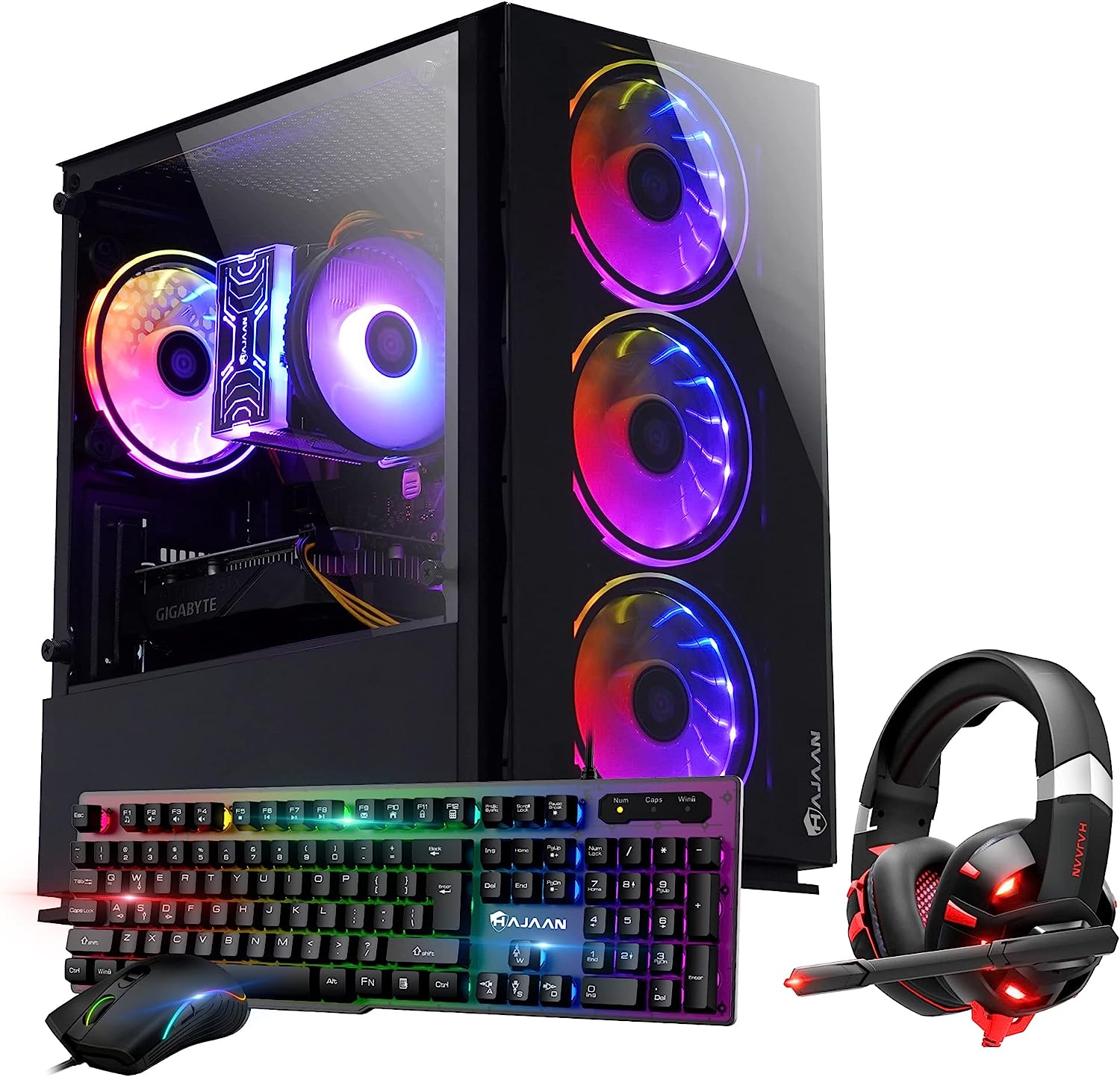What are the Advantages and Disadvantages of Tower PCs
Tower PCs are “stalwart pillars” of performance, flexibility, and versatility. Their sturdy architecture, appropriately dubbed for their vertical orientation, houses a powerhouse of hardware capable of performing even the most demanding tasks, such as video editing and immersive gaming adventures possiblyethereal.
A tower computer is designed to be positioned on or underneath a desk and costs roughly the same as a desktop computer. The brain of this symphony lies in the central processing unit (CPU), which is responsible for executing instructions at lightning-fast speed. Other talented components include the graphics processing unit (GPU), ample RAM, and standard storage units.
Not only this, but the actual charisma of tower PCs also lies in their versatility. Tower PCs, as opposed to their more compact counterparts, come with numerous expansion slots, which allows you to upgrade your systems as your needs change. Whether it’s increasing storage space, improving graphics capabilities, or expanding connectivity possibilities, your tower PCs quickly embrace the demands of the evolving technological landscape.
However, like any other technology, these formidable machines have flaws. Their bulky size renders them less portable, and complex configurations can pose challenges for many users. Under the hood, the hardware components can also generate annoying noises, and the intricate network of cables within a tower PC can lead to unsightly clutter.
Now you have little understanding of what a tower desktop computer is, so let’s come to the main topic and discuss some advantages and disadvantages of tower PCs.
Advantages of Tower PCs
The benefits of desktop tower computers lie in the fact that they are usually compact form factors and can be used in every workspace, which means you do not need a particular data room or any unique bays to install them. You don’t also need a special kind of protocol to maintain them. Let’s uncover their pros in detail incidentalseventy:
1- Unparalleled Performance
At the core of the tower PC lies a central processing unit, also called the maestro of the operation that executes instructions and processes data in the most demanding tasks, such as video editing, 3D rendering, and high-end gaming.
You will see several processor options in the tower computers from Intel and AMD. Both brands manufacture processing chips for entry-level to powerhouse systems.
The second comes the graphics unit. The artist is responsible for bringing gorgeous images and powering demanding graphical applications. Tower PCs come with diverse GPU options to fit your demands, whether creating detailed 3D models or immersing yourself in the latest games.
The third most crucial component is RAM. RAM or random access memory is a temporary storage room where your tower computer stores information to process later. It allows you to seamlessly switch between multiple windows without experiencing lag or delays zoe perry parents. Higher RAM in a desktop PC is handy for people who juggle various tasks simultaneously, such as web browsing, video editing, email writing, and gaming.
Lastly, tower PCs also have larger SSDs, enabling fast boot times and ample space to store larger multimedia files and resource-intensive games.
All these configurations work together in a tower computer to bring plenty of productivity to your table.
2- Easy Upgrades
Tower PCs’ unrivalled upgradeability is another enticing advantage. Compared to their mobile competitors, tower desktops have numerous expansion slots. You can easily change and replace most components like CPU, RAM, Hard Disk drives, GPU, and motherboards.
This versatility extends beyond hardware modifications because tower desktops also thrive at software customisation. Users can personalise their operating systems by installing specialised software and modifying settings to optimise performance for their specific workflows. This flexibility allows them to enjoy a computer experience tailored to their needs and interests.
3- Durability
Tower desktop computers are durable and long-lasting. This is because they are crafted with high-quality and sturdy materials like aluminium and magnesium alloy, making them robust enough to withstand the wear and tear of daily life.
In addition, tower computers don’t have breakable parts. You can use them and locate them without fearing breaking something. They have excellent cooling systems, which make them more durable and less prone to overheating or damage. These features equate to a longer lifespan and cheaper maintenance expenses, further boosting their value proposition.
4- Ergonomics
Tower PCs have a more ergonomic setup than laptops or all-in-one PCs because they have a separate monitor, keyboard, and mouse. This lets users adjust the height and location of each component to maximise their comfort and prevent strain, especially during prolonged use trendzguruji.me health & beauty.
Disadvantages of Tower PCs
Tower desktop computers have their strengths, but they also come with some weaknesses. Here are some of the common disadvantages of tower desktop PCs.
1- Lack of Portability
Desktop computers are often large and bulky in shape and size. Because they are not movable, they must be installed in a specific location. This is the main problem of tower desktop computers; as a result, if you need a computer for on-the-go use, a laptop would be a more suitable choice.
2- Cable Clutter
Tower computers often come with cables to connect various components and peripherals. This can be unsightly and make relocating or moving the system difficult. Managing these cords can also result in an unappealingly dirty and crowded workspace. You must practice cable management to keep your desk organised and minimise clutter.
3- Power Consumption
Tower desktop computers consume more power than laptops and tablets, which may contribute to higher electricity bills. They are less energy-efficient, which can be an issue if you want to decrease your carbon footprint or save money on energy expenditures.
4- Setup Complexity
Assembling and configuring a tower PC is more complex than configuring a pre-built system or a laptop. You will need technical expertise and experience with computer components such as CPUs, motherboards, RAM, and storage devices. If you are inexperienced, we recommend you seek professional assistance or purchase a pre-built tower PC with more straightforward assembly instructions.
Where to Find the Best Computer Towers in the UK?
In the UK, you can find the best computer towers on various retailers and online stores specialising in selling computer hardware and electronics. Some of the most reputable options include:
Amazon UK: Amazon sells computer towers from all the leading brands, including HP, Dell, and Lenovo, and custom-built systems from smaller suppliers. You can find a suitable alternative by reading user reviews and comparing the pricing of different sellers.
Laptop Outlet: Laptop Outlet is a trustworthy UK-based online retailer that offers laptops, desktop computers, and related electronics. They offer a variety of tower PCs from well-known brands like HP, Dell, Lenovo, Acer, ASUS, and more. Lenovo IdeaCentre 5 and HP S01-pF2009na are the best choices for PC gaming enthusiasts and high-end users like creative designers and content creators.
As with any online retailer, it is suggested to research and read customer reviews to ensure that you’re making an informed purchasing decision. Under the hood, you can opt for special promotions, such as Black Friday deals and Cyber Monday offers, to save money.














